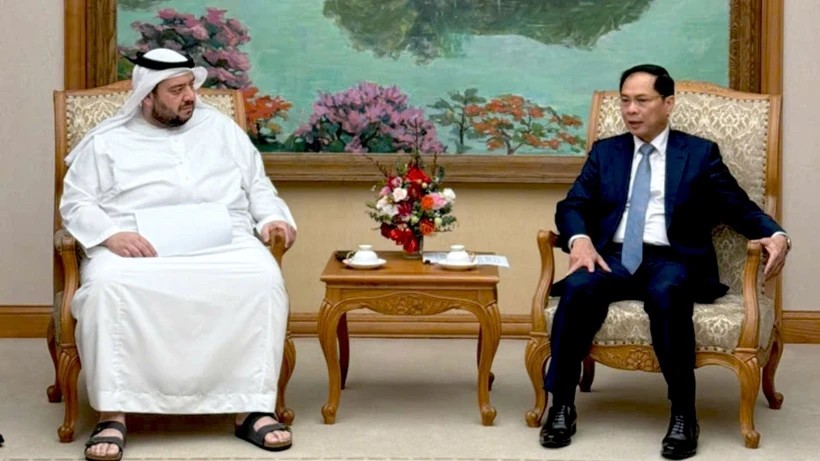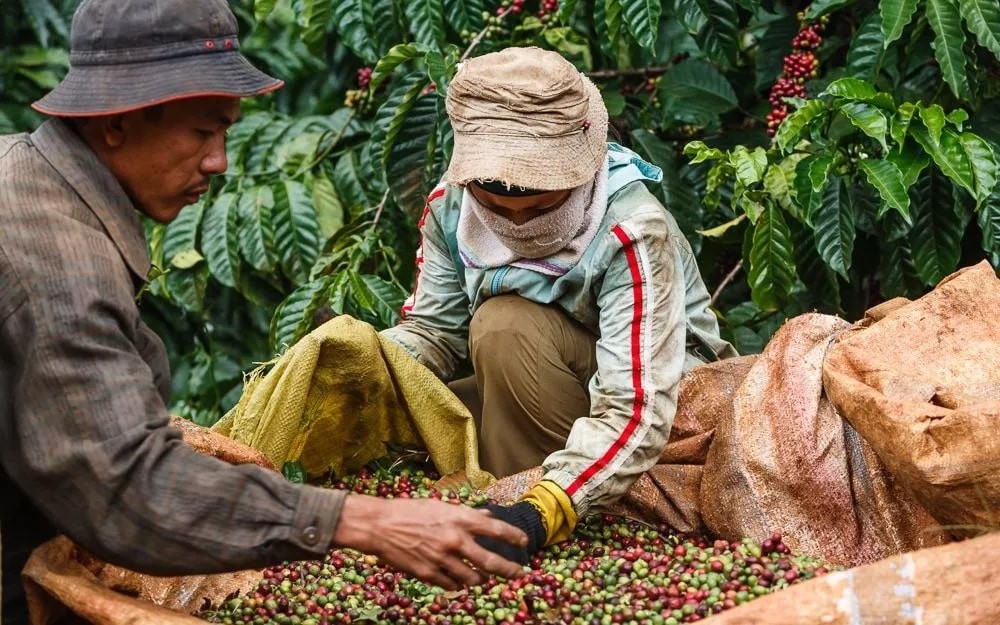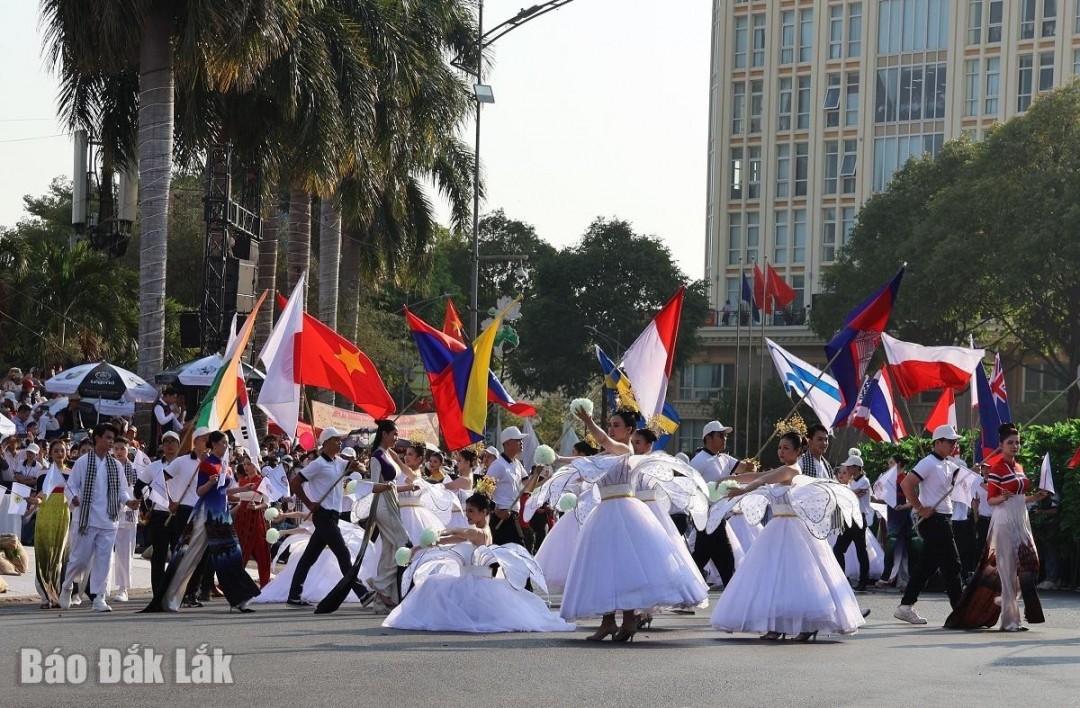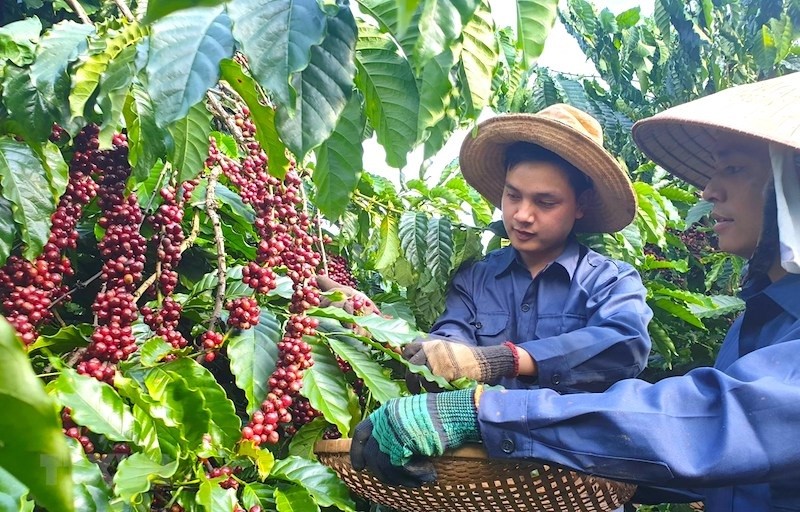Leveraging EVFTA to Boost Coffee Export Growth
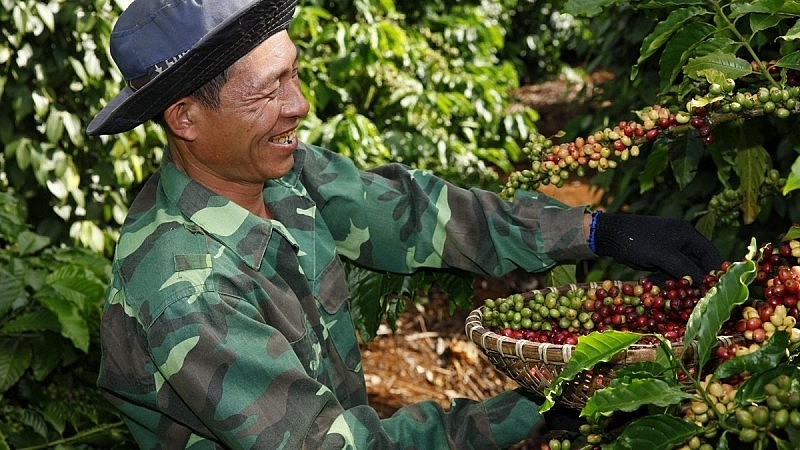 |
| Since the EU - Vietnam Free Trade Agreement (EVFTA) took effect, Vietnam's coffee industry has continuously boosted exports to the EU as many businesses have taken good advantage of this opportunity. |
Production decreased but value increased
In 2023, Vietnam sees positive sign in domestic and export coffee prices. In particular, there was a time when the domestic coffee price increased and left the record mark of VND 70,000/kg. Currently, domestic coffee prices are fluctuating around VND 64,000 - 65,000/kg. This has been a high price for many years.
Do Ha Nam - Vice President of the Vietnam Coffee-Cocoa Association (VICOFA) said that although prices have increased, in some provinces in the Central Highlands, the amount of coffee reserves is very small due to crop failure leading to scarce supply, mainly the reserves are for export to signed contracts.
Reduced supply leads to businesses not being able to buy goods or buy less in quantity. Therefore, many contracts with delivery time in August and September have not yet been delivered.
“For the first time in history, in May and June, Vietnam ran out of coffee. Many businesses have signed contracts but have no goods to deliver", Mr. Do Ha Nam shared. However, it is predicted that from November onwards, when the harvest begins, coffee prices will fluctuate around VND 50,000/kg. At this price, farmers also made a profit.
Although output has declined sharply, export coffee prices have increased, helping this industry set a new record. Statistics from the General Department of Customs show that the first 9 months of this year were at 1.25 million tons, earning more than USD 3.1 billion, lower than 8.3% compared to the same period in 2022, but turnover increased by 0.7% higher than the same period last year.
Regarding consumption markets, the European Union (EU) is still Vietnam's largest coffee export market, accounting for nearly 40% of Vietnam’s total coffee export volume.
Taking advantage of EVFTA
Since EVFTA took effect (August 1, 2020), Vietnam's coffee industry has continuously boosted exports to the EU. Huynh Ngoc Duong, Deputy Director of the Department of Industry and Trade of Dak Lak province said that in the past, it was tough for Dak Lak to register coffee for geographical indication protection. Thanks to the EVFTA, all 27 member countries have recognized the protection of geographical indications of coffee. When implementing EVFTA, businesses have taken advantage of instant coffee exports, and export value is increasing.
Having investment experience in the coffee industry and taking advantage of FTAs for export, Mr. Phan Minh Thong, Chairman of Phuc Sinh Group, said that Vietnam is a highly open economy, participating in many FTAs forcing businesses to change a lot, from investment thinking, production, to management to compete with global businesses coming to Vietnam to set up manufacturing plants.
Phuc Sinh Group's strategy is to invest heavily in the processing of agricultural products, especially coffee and pepper. Currently, this business is investing in a deep spice processing line to be able to make crushed products, roasted and soluble products, taking advantage of 0% tax under EVFTA.
Vice President of VICOFA Do Ha Nam commented that Vietnam currently ranks second in the world in coffee exports. Particularly for robusta coffee, Vietnam accounts for 50% of the global supply. In recent years, the growth rate of Vietnam's coffee industry has witnessed a rapid increase. From a country without consumers, Vietnam is now one of the coffee exporting powers.
For the EU market, Nam said, coffee is an essential commodity. However, this market is also increasingly demanding high-quality coffee. Accordingly, the EU's tightening of pesticide residue regulations for beans, including coffee at 0.1 mg/kg, is also a challenge, requiring farmers to adjust production methods for export activities. The EU regulations on combating deforestation and forest degradation take effect from 2023 and will be implemented by December 31, 2024. At that time, the EU will not import seven products grown in deforested areas, including rubber coffee, palm oil... These are the difficulties that the Vietnamese coffee industry is facing.
In that context, to take advantage and increase exports, besides investment in deep processing, Vietnamese businesses must change management systems and make creative operations to create suitable products that can compete with an open market.
 | EVFTA Creates Numerous Opportunities for Vietnam: Seminar Non-EU companies investing in Vietnam should take advantage of the reduced tariffs under the EU-Vietnam Free Trade Agreement (EVFTA), heard a seminar held recently in ... |
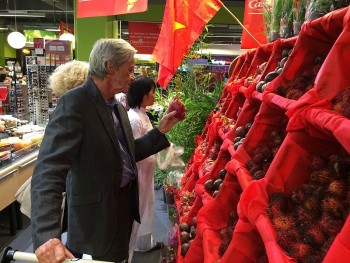 | EVFTA Facilitates Vietnamese Goods' Entry Into French Market Following a series of promotion activities, image-building, and consumer-orienting efforts carried out by the Vietnam Trade Office, Vietnam's products have gradually gained footholds and recognition ... |
 | Vietnamese, Czech Businesses Foster Connectivity With a population of 100 million, Vietnam has strengths in agriculture, aquaculture, garment, leather and footwear, wood products, electronics and consumer goods while the Czech ... |
Recommended
 Focus
Focus
Vietnam Leaves Imprints on the World Peacekeeping Map
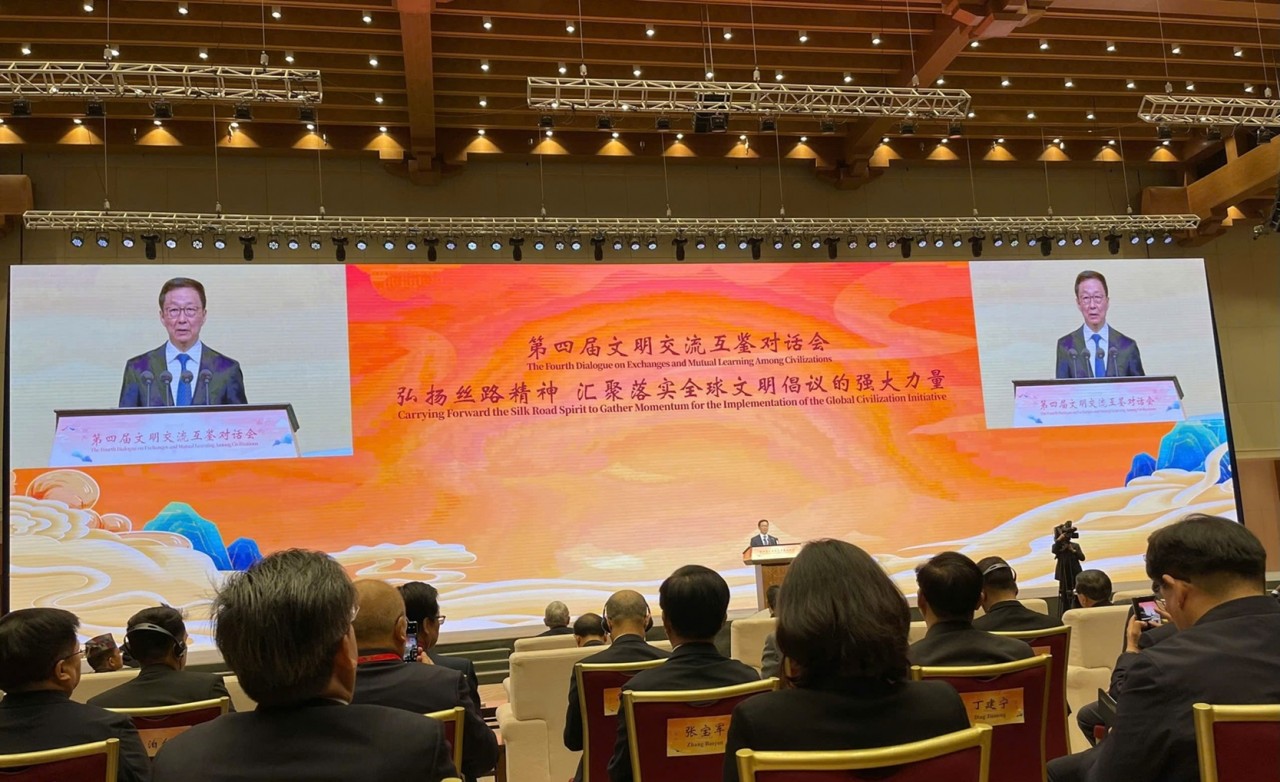 Friendship
Friendship
VUFO Attends Fourth Dialogue on Exchange and Mutual Learning among Civilizations
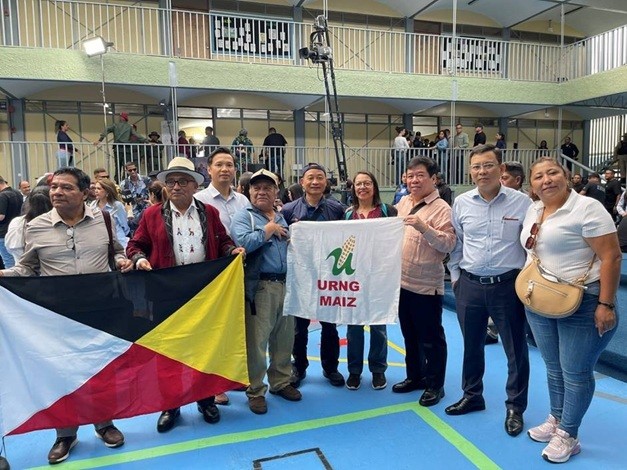 Focus
Focus
Strengthen Solidarity and Friendship Between Vietnam and Venezuela
 Focus
Focus
"Vietnamese - Cuban Children, Deep Friendship" Painting Contest Announces Winners
Popular article
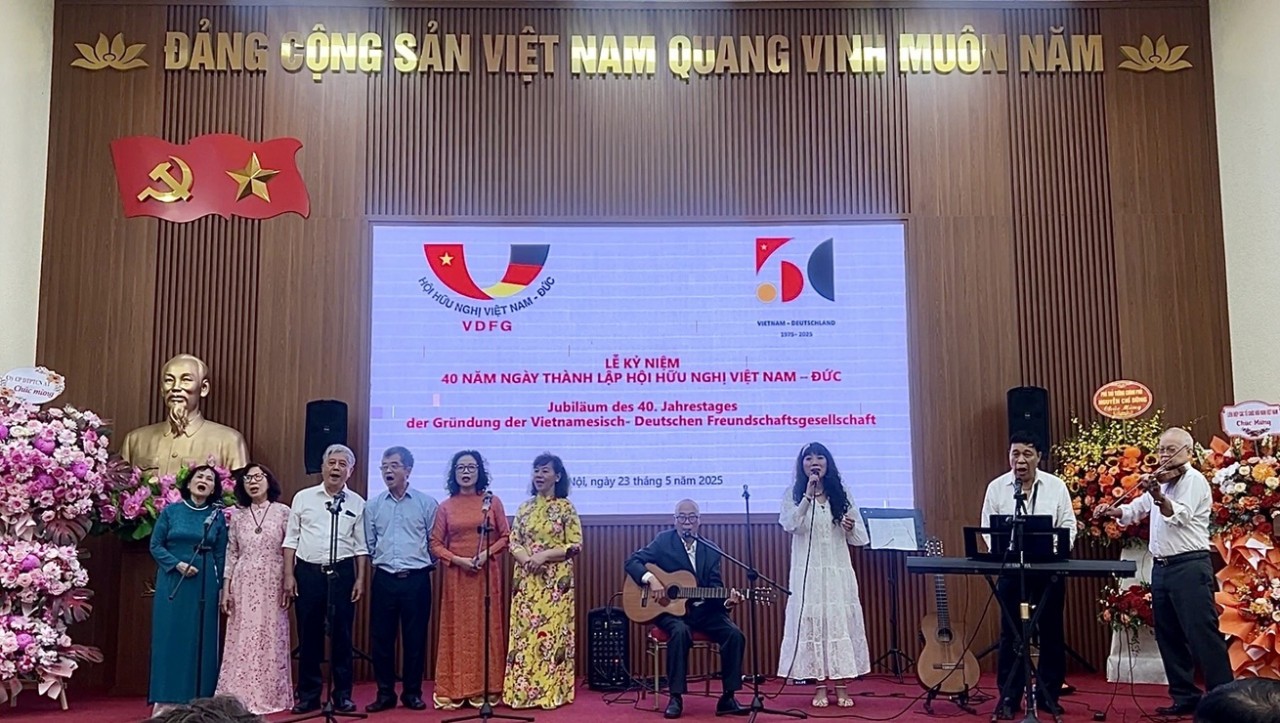 Focus
Focus
Solid Bridge for People-to-people Relations between Vietnam and Germany
 Focus
Focus
35 Years of FES in Vietnam: Fostering Dialogue, Advancing Equity
 Friendship
Friendship
VUFO Appreciates Contributions of American Veterans in Overcoming Consequences of War
 Focus
Focus




